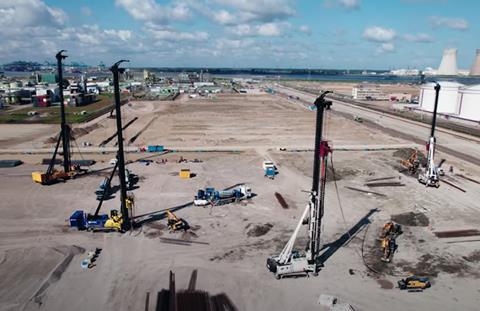The environmental permit for the billion-dollar Ineos Project ONE has been revoked, dealing a harsh blow for Antwerp’s – and Europe’s – chemical sector.

Ineos Project ONE represents the largest investment in the European chemical sector for a generation. The project would have seen the construction and operation of the most environmentally sustainable cracker on the Continent, with the plant having the lowest carbon footprint in Europe – three times lower than the average European steam cracker, according to Ineos.
Originally receiving its environmental permit from the Flemish government more than a year ago, the plant at the port of Antwerp would convert ethane into ethylene, one of the basic raw materials for plastic production.
14 associations submitted an annulment appeal, pointing to the possible environmental and climate risks of the project. ClientEarth, one of the associations appealing the project, said the plant should never have been given the go-ahead by authorities. It added that the permit infringes EU environmental regulations and will adversely affect the climate, air quality and human health, as well as protected natural areas.
“Plastics are a slow-motion disaster for people and the environment. They are not only a concern because of the waste that they generate, but also because of the increasing problem they pose to the climate and our health,” it said.
Separately, the granting of the permit was also challenged by the Dutch provinces of North Brabant and Zeeland; the province of North Brabant said the Ineos project has been licensed without the effects of the additional nitrogen deposition having been sufficiently investigated. A particular concern for North Brabant is to preserve the nature reserve Brabantse Wal from further nitrogen damage.
In the May/June 2023 edition of the magazine, HLPFI’s report on the Benelux discussed the increased efforts to tackle nitrogen emissions, and the effect that has on future developments in the region. It was identified as a potential risk to the future growth of industry.
It seems that that risk has become reality for Ineos Project ONE. According to Albert Pegg, a veteran of the Antwerp logistics scene, “the fact that the Flemish government doesn’t have a formal nitrogen decree in place doesn’t help either. As long as this hasn’t been solved, each and every environment permit given can be questioned.”
The Belgian federation of the chemical industry and life sciences sector, essenscia, agreed that the “motivation for the decision primarily points to the lack of a clear regulatory framework for the nitrogen problem”.
It said: “The fear of a license stop is now real because as long as there is no definitive nitrogen decree, other investment projects are also threatened. This is also a particularly bad signal internationally for the attractiveness of Flanders as a strategic investment location.”
And it is not just Antwerp that will feel the loss of the project. The large-scale development would strengthen the resilience of the whole European chemical sector, removing dependence on overseas suppliers.
One does not need to look far back in the history books to find examples of why investing in one’s own industrial manufacturing capacity (and energy infrastructure) is prudent. Of course, environmental impacts should be thoroughly addressed and mitigated. But if one of the most environmentally friendly proposals cannot move forward, it begs the question: how is European industry going to grow or compete?
As essenscia explained: “The fact that such a global-scale project, using the best available technologies and most environmentally friendly techniques, is now being put at risk is a blow to the industry in Flanders and Europe.”
The Flemish government now has six months to decide again on the permit application.
















